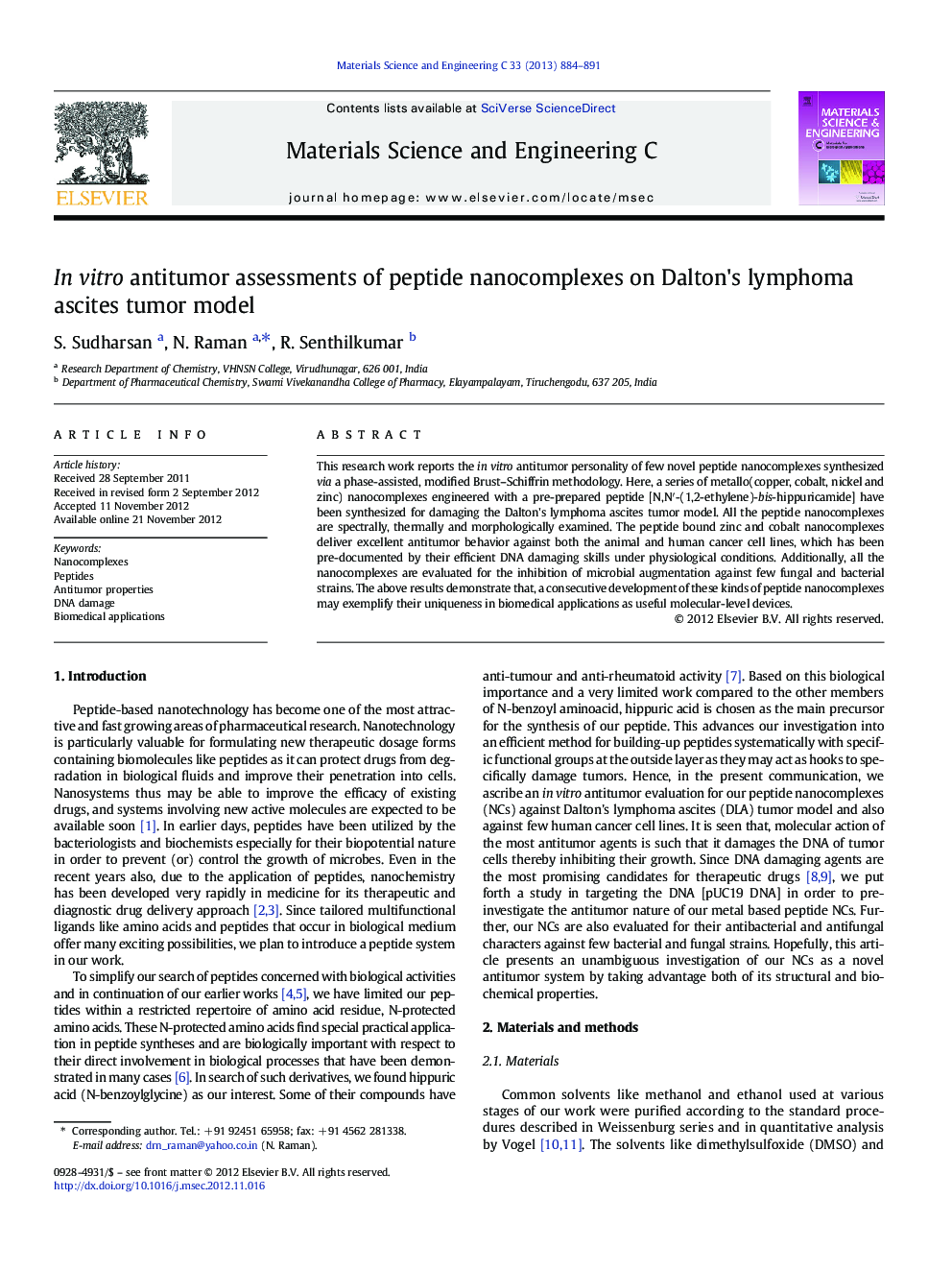| کد مقاله | کد نشریه | سال انتشار | مقاله انگلیسی | نسخه تمام متن |
|---|---|---|---|---|
| 1428896 | 987160 | 2013 | 8 صفحه PDF | دانلود رایگان |

This research work reports the in vitro antitumor personality of few novel peptide nanocomplexes synthesized via a phase-assisted, modified Brust–Schiffrin methodology. Here, a series of metallo(copper, cobalt, nickel and zinc) nanocomplexes engineered with a pre-prepared peptide [N,N′-(1,2-ethylene)-bis-hippuricamide] have been synthesized for damaging the Dalton's lymphoma ascites tumor model. All the peptide nanocomplexes are spectrally, thermally and morphologically examined. The peptide bound zinc and cobalt nanocomplexes deliver excellent antitumor behavior against both the animal and human cancer cell lines, which has been pre-documented by their efficient DNA damaging skills under physiological conditions. Additionally, all the nanocomplexes are evaluated for the inhibition of microbial augmentation against few fungal and bacterial strains. The above results demonstrate that, a consecutive development of these kinds of peptide nanocomplexes may exemplify their uniqueness in biomedical applications as useful molecular-level devices.
Novel metal based peptide nanocomplexes have been synthesized via a phase-assisted synthetic approach. The in vitro antitumor properties of all the nanocomplexes are evaluated against Dalton's lymphoma ascites tumor model and few human cancer cell lines. The zinc and cobalt NCs exhibit potent antitumor activity against all the cell lines.Figure optionsDownload as PowerPoint slideHighlights
► Antitumor properties of nanocomplexes are evaluated against animal and human cancer cell lines.
► Zinc and cobalt nanocomplexes are the most active antitumor agents compared to others.
► The antitumor nature of our nanocomplexes is pre-evaluated by their DNA damaging skills.
► The antitumor behavior of our nanocomplexes is driven by the peptide EHA.
Journal: Materials Science and Engineering: C - Volume 33, Issue 2, 1 March 2013, Pages 884–891